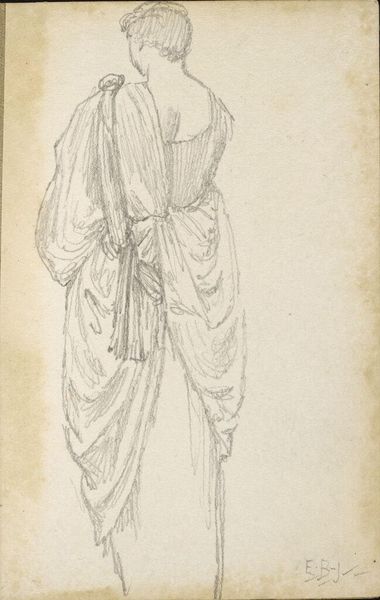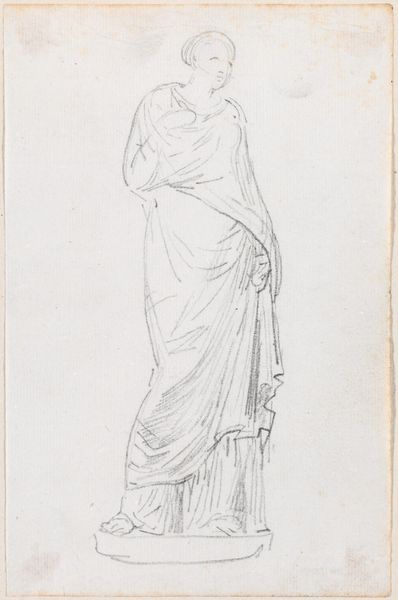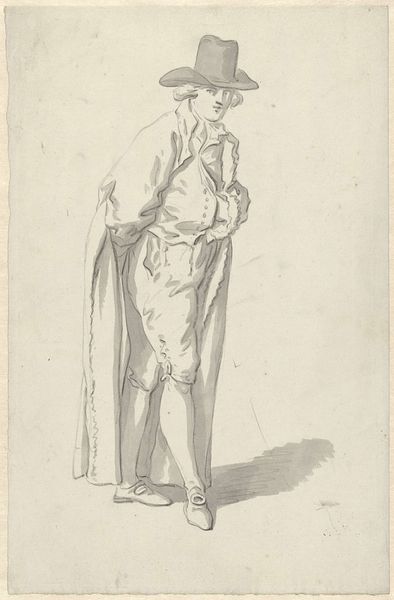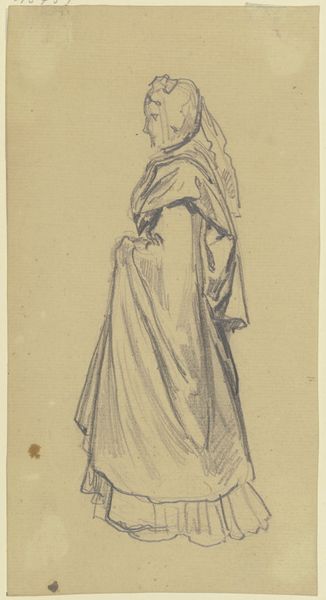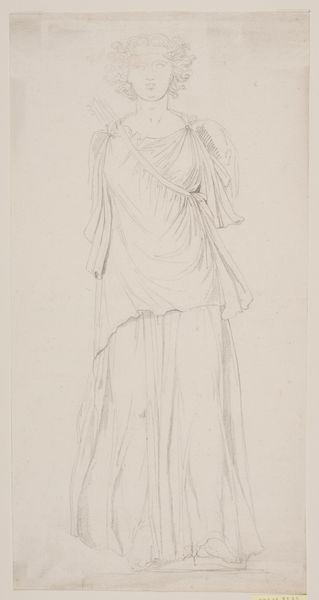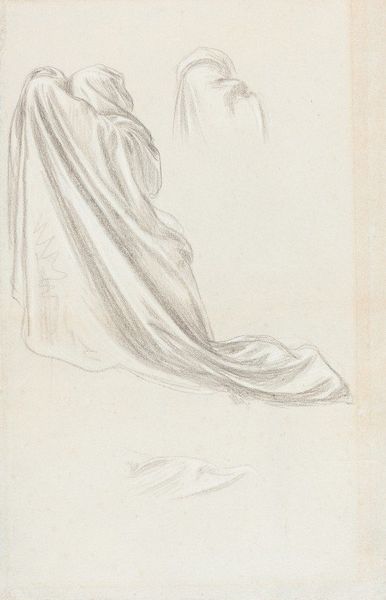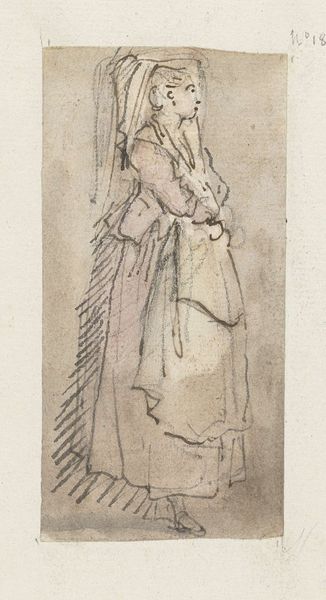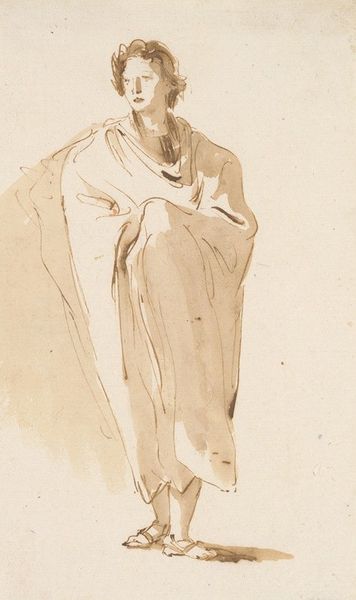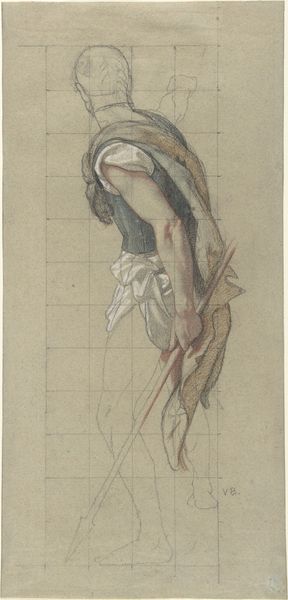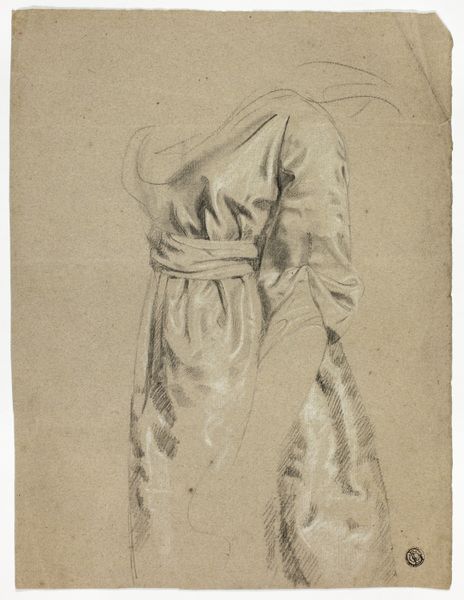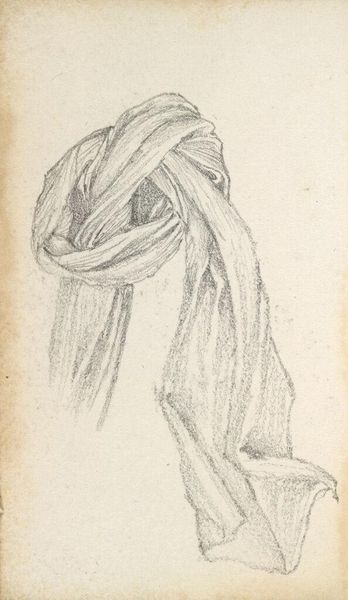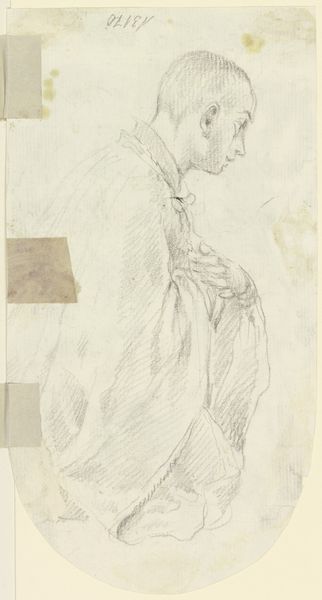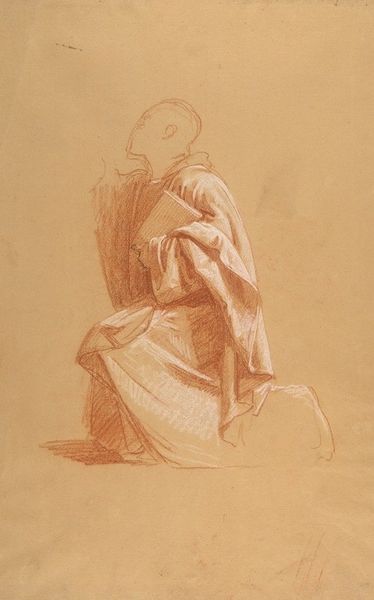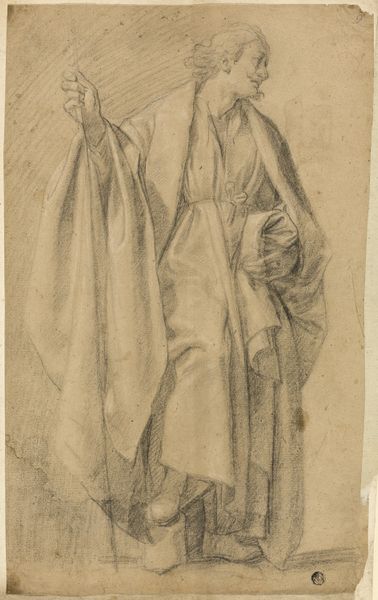
drawing
#
pencil drawn
#
drawing
#
amateur sketch
#
toned paper
#
light pencil work
#
pencil sketch
#
incomplete sketchy
#
charcoal drawing
#
pencil drawing
#
portrait drawing
#
pencil work
Copyright: Public Domain: Artvee
Editor: This is Eugène Delacroix's "Standing Woman in Moroccan Costume," made around 1834. It's a pencil drawing on what looks like toned paper. It has this fleeting, almost dreamlike quality. What stands out to you? Curator: The materiality itself speaks volumes. Look at the hasty application of pencil, the sketchiness. It reveals Delacroix's process – not aiming for perfection, but for capturing an impression. The toned paper adds to this, providing a pre-existing ground that isn't neutral. What does it mean that he chooses to represent this woman not as a finished portrait, but as a study? Editor: That’s a really interesting point! I hadn’t considered that. The unfinished quality makes me think about accessibility - how available were Moroccan textiles and garments in Parisian culture at this time? Curator: Exactly. The means of production of the image, cheap paper and pencil, contrast with the exotic "Moroccan Costume." He's not representing "Morocco," but a mediated idea, filtered through Parisian consumption. The "Moroccan Costume" is becoming another commodity to be consumed and studied, in drawing after drawing by Delacroix, in a gesture which reproduces structures of imperial vision and ownership. It challenges our idea of high art doesn't it, when the material basis is so grounded in labour and circulation. What did the production and movement of pigment, paper and garments from Morocco cost, or who did it benefit? Editor: So, this isn't just a drawing of a woman in exotic clothing; it's also a record of a specific interaction with materials and culture, a particular economic and historical moment of consumerism and consumption of Orientalism.. I never thought about it that way before! Curator: Precisely! Examining the materiality reframes how we see both the art and the world it depicts.
Comments
No comments
Be the first to comment and join the conversation on the ultimate creative platform.
